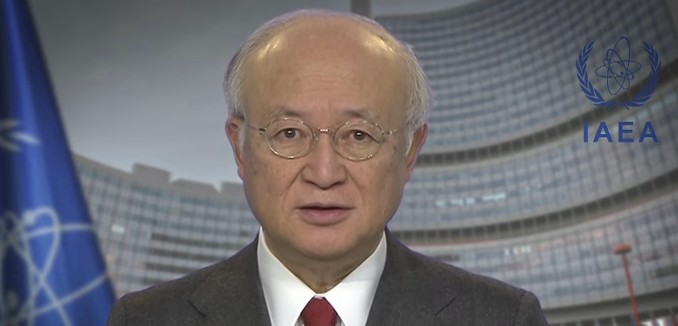On Wednesday, the head of the International Atomic Energy Agency stated that the nuclear deal with Iran has limited the types of Iranian nuclear activities on which the IAEA is required to publicly report. When asked, at 16:07 in the video linked to, why the IAEA is “not giving enough details for the international community to follow the process and review” of Iran’s compliance with the nuclear deal, the Director General of the IAEA, Yukiya Amano, explained that the basis for reporting changed under UN Security Council (UNSC) Resolution 2231 and the December IAEA Board of Governors resolution. UNSC Resolution 2231 authorized the nuclear deal with Iran and replaced previous UN Security Council resolutions on Iran. Amano asserted, “as the basis is different, the consequences are different.”
The journalist’s question was prompted by several analyses by nuclear experts who observed that the IAEA was publicly reporting on fewer aspects about Iran’s nuclear program than previous reports, and that the IAEA’s first report on Iran’s compliance with UNSC Resolution 2231 provides insufficient information on Iranian nuclear activities that are pertinent to effective verification and monitoring. Aspects not covered in the report include the exact amount and forms of Iran’s 3.67% enriched uranium; the amount of near 20% low-enriched uranium Iran currently possesses (the nuclear deal mandates that Iran have none); the numbers and types of centrifuge rotors and bellows which are essential to calculating Iran’s breakout time; and whether Iran has given the IAEA appropriate access to certain sites under the Additional Protocol (AP).
The administration has repeatedly argued that the nuclear deal is based on transparency and verification. However, regarding the IAEA’s latest report, Olli Heinonen, a former Deputy Director at the IAEA, remarked that “less-detailed reporting, after all, fails to provide the transparency required for the JCPOA’s verification.” President of the Institute for Science and International Security and former weapons inspector David Albright, along with his colleagues Serena Kelleher-Vergantini and Andrea Stricker, asserted that by failing to provide the public with information that is key to judging Iranian compliance with the nuclear deal, the IAEA “risks undermining public transparency and confidence in the agreement.”
[Photo: IAEAvideo / YouTube ]




